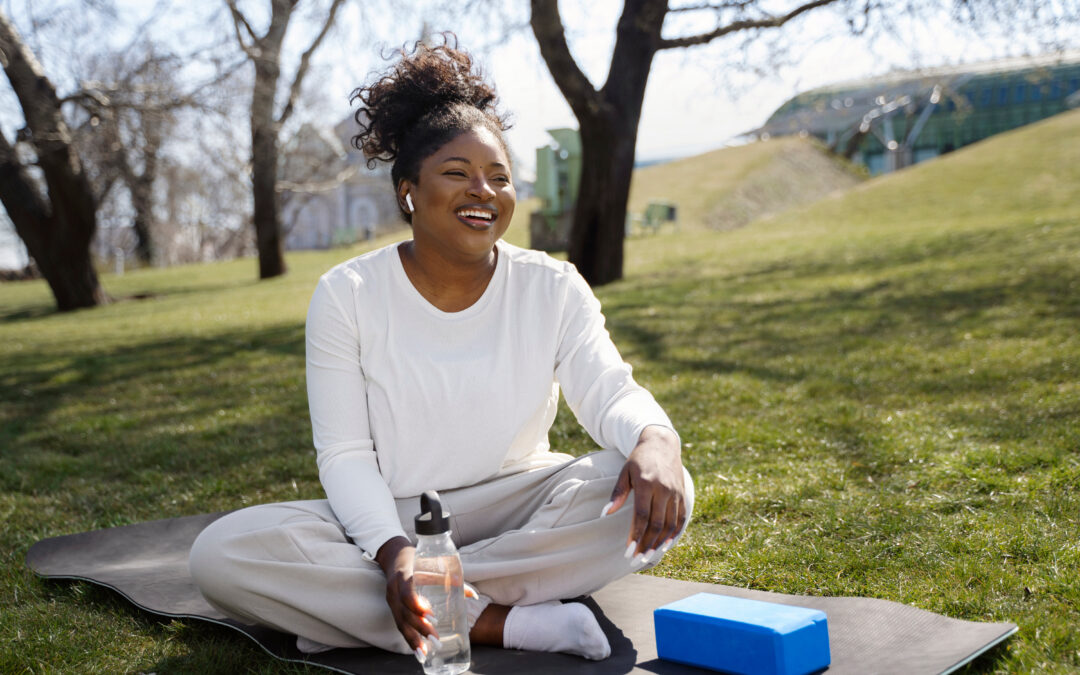From Stress to Serenity: Navigating Anxiety, Depression, and Emotional Shifts Across the Menopausal Journey
Vitalis Origin – Empowering Women Through Every Hormonal Transition
“Why do I feel like I’m falling apart… and is anyone else feeling this way too?”
If you’re a woman in your 40s or 50s and asking this question, you’re not alone. The transition into menopause is more than just the end of menstruation—it’s a deeply personal, emotional, and often misunderstood phase of life. For many, it comes with an invisible weight: anxiety, depression, and stress that seem to appear out of nowhere or suddenly intensify.
These psychological complaints are not “just in your head.” They are biological, hormonal, and very real. And most importantly, they are treatable—especially when you understand what’s happening.
In this article, we explore the science and the solution: how anxiety, depression, and stress unfold across the stages of menopause, and how you can gently take back control of your emotional and mental well-being with the Vitalis Origin approach to holistic balance.
Understanding the Psychological Storm of Menopause
A major 2021 review in the Journal of Women’s Health highlighted that perimenopausal and postmenopausal women report significantly higher rates of anxiety, depression, and perceived stress compared to premenopausal women. [1] Hormonal fluctuations—primarily in estrogen and progesterone—are central to these mood shifts.
Estrogen has a direct impact on serotonin, dopamine, and GABA, the neurotransmitters that help regulate mood, calmness, and joy. When estrogen drops or fluctuates dramatically (as it does in perimenopause), these calming brain chemicals can also drop, triggering mood swings, nervousness, sadness, and irritability.
In simpler terms: your hormones are hijacking your brain—and it’s not your fault.
Emotional Challenges Across the Menopausal Stages
Let’s break it down stage by stage:
Perimenopause: The Turbulent Transition
This stage—often beginning in your early-to-mid 40s—brings the most intense emotional changes.
-
Hormone levels rise and fall unpredictably
-
Sleep disturbances are common due to night sweats and insomnia
-
Many women experience panic attacks, racing thoughts, or even depression for the first time
Studies show that women in perimenopause are 2–3 times more likely to experience depressive symptoms than premenopausal women. [2]
Menopause: The Emotional Plateau?
Menopause (defined by 12 months without menstruation) may bring a temporary emotional plateau, but psychological symptoms often continue if left unaddressed.
-
Anxiety may persist, particularly in women with a history of mood disorders
-
There can be a psychological grieving around identity, fertility, and aging
-
Emotional numbness or “flat” moods are reported by many
Postmenopause: A New Normal—Or a Lingering Cloud
After menopause, hormone levels stabilize, but emotional shifts may linger:
-
Some women experience health-related anxiety, body image concerns, or memory worries
-
Depression may deepen, particularly in women facing life stressors like retirement, empty nest syndrome, or caregiving for elderly parents
What Increases the Risk?
-
Personal or family history of depression or anxiety
-
Lack of social support
-
Financial or marital stress
-
History of trauma or unresolved grief
-
Sedentary lifestyle or poor diet
-
Thyroid dysfunction (often overlooked)
Understanding the full picture—including the psychological and lifestyle contributors—helps women move from confusion to clarity.
The Vitalis Origin Path to Peace: How to Support Your Mind Through Menopause
At Vitalis Origin, we know emotional well-being is just as important as physical comfort. Here’s our holistic blueprint to help you thrive emotionally and hormonally:
1. Feed Your Mood with Healing Foods
Foods rich in phytoestrogens, omega-3s, magnesium, and B vitamins have been shown to stabilize mood and reduce inflammation in the brain:
-
Flaxseed, sesame, and soy (balance estrogen naturally)
-
Fatty fish (reduce anxiety and depression)
-
Leafy greens and legumes (support neurotransmitter production)
-
Dark berries, turmeric, and avocado (anti-inflammatory powerhouses)
A Mediterranean-style diet has been linked to lower depression and anxiety scores in menopausal women. [3]
2. Move to Shift Your Mood
Exercise increases endorphins (your brain’s happy chemicals), reduces cortisol (the stress hormone), and improves sleep quality—which is key to anxiety relief.
-
Aim for 30 mins/day of walking, dancing, yoga, or light strength training
-
Try “joyful movement,” not punishment-driven workouts
3. Support with Plant-Based Nutraceuticals
-
Ashwagandha: lowers cortisol and reduces stress
-
Black cohosh: supports mood and hot flash relief
-
Magnesium: calms the nervous system and aids sleep
-
Vitamin B6 and B12: crucial for mood regulation
Our MenoEase by Vitalis Origin is crafted specifically to help you navigate anxiety, fatigue, and hormonal imbalance with grace and ease.
4. Therapy and Talk: Break the Silence
-
Cognitive Behavioral Therapy (CBT) is proven to reduce menopausal depression and anxiety.
-
Peer groups or community conversations reduce the sense of isolation.
You don’t have to do this alone. Share your journey, ask for help, and allow others to support you.
Final Words: This Is Not the End—It’s a Hormonal Renaissance
Menopause is not a breakdown—it’s a breakthrough. By understanding the complex emotional terrain and how your hormones impact your mental state, you can reclaim your joy, focus, and peace.
Stress, anxiety, and depression are not weaknesses—they are signals. And with the right tools—nutrition, movement, supplementation, and community—you can move through this transition not just surviving, but radiantly thriving.
Vitalis Origin: Rooted in Nature. Backed by Science. Inspired by You.
Let’s rewrite the menopause story—one woman, one conversation, and one healing moment at a time.
Citations & Sources
-
Green SM, Key BL, McCabe RE. The relationship between the menopause transition and anxiety and depression symptoms: a systematic review. J Women’s Health. 2021.
-
Freeman EW, Sammel MD, Liu L, et al. Anxiety and hormonal changes during the menopausal transition. Menopause. 2011.
-
Jacka FN, O’Neil A, Opie R, et al. A randomised controlled trial of dietary improvement for adults with major depression (the SMILES trial). BMC Med. 2017.

